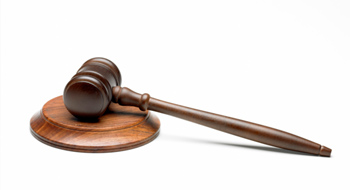
Honda Canada was before the Supreme Court last week in an effort to have an Ontario Court’s landmark ruling of discrimination against a former employee overturned.
Kevin Keays was originally awarded 24 months pay and $500,000 in damages after a court ruled that his employment at Honda had been terminated in bad faith. Keays, a 13-year veteran of the company and former model worker, was diagnosed in 1997 with Chronic Fatigue Syndrome, rendering him unable to work and resulting in prolonged absenteeism. After two years his disability benefits ran out and he was required to return to work.
Upon his return, the court found that Honda’s management initiated a campaign of discrimination and harassment against him, demanding Keays consult several company physicians, one of whom repudiated the very existence of CFS. On advice of his attorney, Keays refused to see the physician and was fired in March 2000.
The Ontario Superior Court found that Keays was fired unjustly and awarded him the significant sum due to Honda’s violation of his human rights. In the ruling, Justice John McIsaac wrote that, “Honda committed a litany of acts of discrimination and harassment,” and referred to Honda as a “leviathan” and Keays a “minnow.”
Honda appealed the ruling, and the Ontario Court of Appeal affirmed the decision but lowered the damages to $100,000.
Michael Fitzgibbon, a partner in Borden Ladner Gervais’s Toronto office, suggests this case has implications for all Canadian businesses. “This case has brought disability to the forefront of corporate consciousness,” he says. “Employers should be very careful when dealing with invisible disabilities. They should be extremely patient and not act as if it doesn’t exist.”
Fitzgibbon says that he’s seen an increase in claims of punitive damages for cases of bad faith discharge since the Ontario Court’s decision, and the Supreme Court’s verdict will dictate what employees can claim for compensation in the future. The case will also require the court to reconsider a Supreme Court decision from 30 years ago that limited the ability of judges to award damages for violations of human-rights code guarantees.
Fitzgibbon suggests that companies should learn from Honda’s case. “Employers would be wise to go the extra mile in the event they are taken to court to prove they did everything they could before terminating employee.”
A final decision is expected to be handed down in six to eight months. For some background information on this case, click here.
